
This resource provides a look at various publications concerning social worker health and wellness.
- Subject:
- Career and Technical Education
- Education
- Social Science
- Material Type:
- Reading
- Date Added:
- 01/27/2016

This resource provides a look at various publications concerning social worker health and wellness.
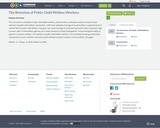
This curriculum is intended to help child welfare workers, administrators, and policy-makers increase the job retention of public child welfare caseworkers. California’s statewide shortage of social workers is expected worsen, and the field of public child welfare is facing its own acute shortage of social work personnel. More important, high turnover rates in child welfare agencies are a major obstacle to timely investigations, compromising the ability of agencies to protect children. The retention of public child welfare workers is an immediate pressing professional and practical concern, and this curriculum points directly to specific solutions to the problem. (58 pages)Weaver, D., Chang, J., & Gil de Gibaja, M. (2006).

This curriculum is designed to educate social workers about the experiences and needs of families involved with both public welfare and child welfare services so that they can provide high-quality case management services within a post-welfare reform environment. Based on research from a longitudinal, ethnographic study of families living in an urban environment, the curriculum includes: a review of child welfare outcomes in the welfare reform era; a description of welfare reform as implemented in one county, including examples from the client's perspective of managing within a welfare-to-work environment; a cost of living analysis of life on welfare; a set of case examples illustrating pathways from welfare to child welfare, with special attention to aspects of welfare reform which may play a role in child welfare outcomes; and a discussion of how to apply qualitative research methods toward improving child welfare practice, as well as an explanation of the research methods used for the study. (187 pages)Frame, L., Berrick, J. D., Sogar, C., Berzin, S. C., & Pearlman, J. (2001).
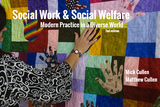
This text is intended for use in introductory social work classes at the college level. Chapter topics include the foundations and history of social work and social welfare; generalist social work; ethics and values; social policy; race & ethnicity; sex, sexism, & gender; LGBTQ+ clients; poverty and financial assistance; school social work; families and children; healthcare and disabilities; substance use; mental health; criminal justice; and older clients. Mick Cullen, LCSW, CADC, MA, is a professor and chair of the social work/human services department at College of Lake County in Grayslake, Illinois. Matthew Cullen, LICSW, LCSW, M.Ed., is a counselor at Green River College in Auburn, Washington.
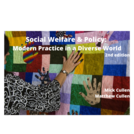
This text is intended for use in introductory social work classes at the college level. Chapter topics include the foundations and history of social work and social welfare; generalist social work; ethics and values; social policy; race & ethnicity; sex, sexism, & gender; LGBTQ+ clients; poverty and financial assistance; school social work; families and children; healthcare and disabilities; substance use; mental health; criminal justice; and older clients. Mick Cullen, LCSW, CADC, MA, is a professor and chair of the social work/human services department at College of Lake County in Grayslake, Illinois. Matthew Cullen, LICSW, LCSW, M.Ed., is a counselor at Green River College in Auburn, Washington.

This curriculum focuses on the implications of California's changing welfare policy on public child welfare practice and addresses welfare policy, child welfare practice, and the impact of welfare reform on child welfare clients who are also involved with the public welfare system. Chapters include: a summary of welfare reform in California, a look at the differences between the old approach to welfare and workfare (AFDC and GAIN) and the new approach under CalWORKS, a history of welfare and child protection policy, a look at families who have been involved with both the welfare and child protection systems, an analysis of interviews with child welfare workers and administrators that explores the myriad ways in which the new federal and state policies are likely to impact their clients and themselves as professionals, and the implications of welfare reform for child protection and child welfare practice. (318 pages)Frame, L., Berrick, J. D., Lee, S., Needell, B., Cuccaro-Alamin, S., Barth, R. P., et al. (1998).

This course covers theory and evidence on government expenditure policy-- topics include: The theory of public goods; Education; State and local public goods; Political economy; Redistribution and welfare policy; Social insurance programs such as social security and unemployment insurance; and Health care policy.
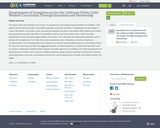
This report covers the development and uses of competencies, the programmatic foundation of CalSWEC's child welfare services effort for public child welfare graduate social work education. Competencies are developed to create a foundation of principles, goals, and learning objectives for public child welfare MSW students and outline what graduate social work specialists in child welfare need to know and be able to do in order to provide professional services to disadvantaged families and children. Part I describes the collaborative methods used to develop the competencies. Part II lists the actual competencies. Each competency includes an objective, a recommendation for the setting where the competency can best be learned (field/classroom), associated activities for use in the classroom and field, and suggested methods of student evaluation. Competencies have been used to: enhance collaboration between MSW programs and public agencies by providing a set of learning objectives for field placement contracts and a means for student evaluation, apply classroom learning to field practice, develop empirically-based curriculum, and develop curriculum for continuing education of public child welfare workers. (81 pages)Clark, S. J., & Dickinson, N. (1998).
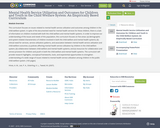
This curriculum focuses on issues related to mental health service utilization and outcomes among children in the child welfare system. In spite of the documented need for mental health services for these children, there is a lack of information on children involved with both the child welfare and mental health systems. In order to improve our understanding of the issues and needs of this population, this curriculum focuses on five areas: (a) demographic and system-related characteristics of children involved in both the child welfare and mental health systems; (b) clinical need for services, service utilization patterns, and association between mental health service utilization and child welfare outcomes; (c) policies affecting mental health service utilization by children in the child welfare system; (d) collaboration between child welfare and mental health systems; and (e) resources for collaboration and service provision for children and youth in both the child welfare and mental health systems. The curriculum will provide research highlights, conceptual frameworks, tools, and experiential opportunities to strengthen understanding of a wide range of issues related to mental health service utilization among children in the public child welfare system. (165 pages)Hines, A. M., Lee, P. A., Osterling, K. L., Tweed, M. (2007).

This is the current revision of the CalSWEC MSW Curriculum Competencies (10 pages).
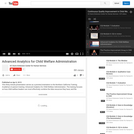
This thirty minute presentation serves as a preview/orientation to the Northern California Training Academy's in-person training: Advanced Analytics for Child Welfare Administration. To learn more about the Academy and upcoming courses, please visit humanservices.ucdavis.edu/Academy

This multi-component project studied the impact of the implementation of the Child Welfare Services/Case Management System (CWS/CMS) on child welfare practice by examining the casework practices affected by computerization, measuring the extent to which these practices were affected by computerization, and identifying organizational and individual factors that influenced the effect of computerization on these practices. Findings showed that the implementation of CWS/CMS did not lead to drastic changes in the ways in which CWSs carried out their daily work; time spent with clients was unchanged. However, the study demonstrated that CWS/CMS led to modest but crucial changes in how workers spent their time on the job, affected the quantity and quality of relationship with coworkers, and changed some workers' attitudes toward their agency and job. (Research Report: 135 pages; Curriculum: 154 pages; Training Academy Curriculum: 111 pages)Weaver, D., Furman, W., Moses, T., Linsdey, D., & Cherin, D. (1999).

Explores the role of government in the economy, applying tools of basic microeconomics to answer important policy questions such as government response to global warming, school choice by K-12 students, Social Security versus private retirement savings accounts, government versus private health insurance, setting income tax rates for individuals and corporations.
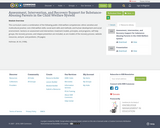
This curriculum covers a combination of the following public child welfare competencies: ethnic sensitive and multicultural practice; core child welfare skills; social work skills and methods; and human development and social environment. Sections on assessment and intervention; treatment models, principles, and programs, self-help groups, the recovery process, and relapse prevention are included, as are models of the recovery process. website resources, and pre- and posttests. (78 pages)Hohman, M. M. (1998).
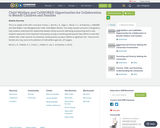
This is an update of the 2001 curriculum: Frame, L., Berrick, J. D., Sogar, C., Berzin, S. C., & Pearlman, J. CalWORKS and Child Welfare: Case Management for Public Child Welfare Workers. This newly revised curriculum is designed to help students understand the relationship between family economic well-being and parenting and to raise students’ awareness of the important role poverty can play in interfering with parents’ best efforts to raise their children well. Under extreme circumstances, family poverty can place children at significant risk – these are the families who may come to the attention of child welfare agencies. (215 pages)Berrick, J. D., Helalian, H. S., Frame, L., Fabella, D., Lee, K., & Karpilow, K. (2010).

Aimed at public child welfare (PCW) audiences, these three modules cover key areas of trauma informed practice delivery: the Neurobiology of Trauma; SSHARED: A Tool for Identifying Signs and Sequelae of Trauma; and Trauma Advocacy with Mental Health Systems. Module materials are multi-media, including assessments, and were designed for future or current PCW workers, with a sophistication level designed to be accessible to beginning masters level students.

The Primacy of the Public presents a framework for engineering and technology ethics focused around three core ethical principles: the principle of welfare, the autonomy principle, and the fairness principle. To support this framework, the book begins with an examination of multiple perspectives we may take on engineering and technology, all of which support the centrality of ethical analysis and evaluation. These include the nature of engineering as a profession, the social context of engineering and technology, and the view that many technologies constitute social experiments.

This course applies microeconomic theory to analysis of public policy. It builds from the microeconomic model of consumer behavior and extends to operation of single and multiple markets and analysis of why markets sometimes fail. We will study empirical examples to evaluate theory, focusing on the casual effects of policy interventions on economic outcomes. Topics include minimum wages and employment, food stamps and consumer welfare, economics of risk and safety regulation, the value of education, and gains from international trade.
MITx Online Version
This course is part of the Micromaster’s Program in Data, Economics, and Design of Policy through MITx Online. The course is entirely free to audit, though learners have the option to pay a fee, which is based on the learner’s ability to pay, to take the proctored exam, and earn a course certificate. To access the course, create an MITx Online account and enroll in the course 14.003x Microeconomic Theory and Public Policy.

This course covers topics and questions such as: What is poverty? How is it defined and measured in the United States and other countries? What are the different program designs that countries use to relieve poverty? To answer these questions, the course examines the main public policy frames that guide theory, research, policy, and practice. How do the definition and policies to deal with poverty change over time? What are the economic, political, and social forces that contribute to the persistence of poverty and its periodic reframing? Can social science to help to resolve the public policy debates that make poverty and its relief so controversial?

In recent years both scholars and policymakers have expressed a remarkable amount of interest in the concepts of social capital and civil society. A growing body of research suggests that the social networks, community norms, and associational activities signified by these concepts can have important effects on social welfare, political stability, economic development, and governmental performance. This discussion based course examines the roles played by these networks, norms, and organizations in outcomes ranging from local public goods provision and the performance of democracies to ethnic conflict and funding for terrorism.